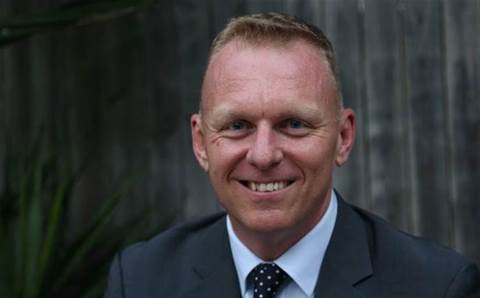Thomas Duryea Logicalis has posted $126 million in revenue for the 2017 financial year in its first full-year report since the merger of Thomas Duryea Consulting and Logicalis Australia, and reported a $1.4 million profit for the year ending 28 February.
The results marks a big turnaround from the company’s previous year, which saw the company report a loss of $3.53 million in a report that came just two months after the 100 percent acquisition was complete.
2017 revenues constituting a full year of combined services reached $126 million, up from $73 million in 2016, representing a 72 percent increase on the pre-merger business. Of the latest revenue, 55 percent came from services, with $69.3 million recorded, while sales made up the remaining 45 percent at $56.7 million.
Chief executive Michael Chanter acknowledged the record revenue. He said while it was difficult to draw a linear comparison between the 2016 and 2017 financial years on the basis of the most recent report taking into account the combined businesses, he noted TDL in Australia was delivering strongly into the global Logicalis group.
“I can only really benchmark what we’re doing here versus the rest of the group but at the moment it would be fair to say that we’d have one of the strongest results around the world, that's a positive outcome for us locally,” he told CRN.
TDL is already three months into its new financial year, which kicked off in May. Chanter took the opportunity to highlight how the company was making strides on a clean slate.
“We’ve kicked off Q1 this year with a massive result. I’m really happy with how things are going out there,” he said. “From the three months from March we’re ahead of budget in every measure, in terms of sales and revenues contributions, in some instances almost 400 percent ahead of where we forecast, even in some of the areas where I’m hearing that things are a bit soft, such as product sales, we’re well ahead of our own forecast.”
Chanter mentioned a number of projects in the pipeline for the 2018 financial year already, including a national managed services deal with the Royal Automobile Club, a digital transformation project with one of the biggest retailers in Australia, in conjunction with Microsoft, and an IT strategy and transformation program for one of the country’s biggest ports and logistics companies.
The report also highlighted $666,000 spent in restructuring, a process the company spoke on in May this year that set out to reorganise the business around digital transformation including the formation of practices in hybrid infrastructure, modern workspace, data and analytics and security. It was reported at the time the restructure would not involve job cuts, and Chanter followed this by flagging the company was indeed on the hunt for new professionals.
“[We’ve had] good results, everything is heading in the right direction, the big challenge that we have is to back it up with new talent in our new go to markets, we’re keen to acquire talent in data analytics and our security practice as well as across the business,” he said.







.png&h=142&w=230&c=1&s=1)





.jpg&w=100&c=1&s=0)











